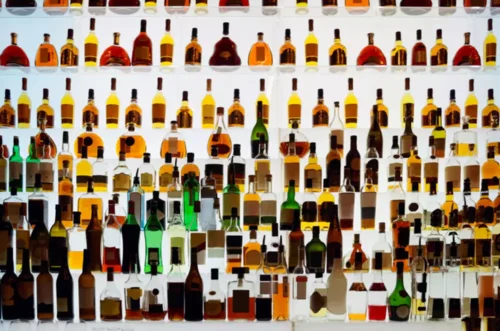
But treatment varies based on the severity of alcohol withdrawal and the likelihood that it could progress to severe or complicated withdrawal. Alcohol withdrawal can range from very mild symptoms to a severe form, known as delirium tremens. Most people stop having withdrawal symptoms four to five days after https://ecosoberhouse.com/ their last drink.

When Does Alcohol Withdrawal Start?
You can still pursue therapy and support groups as you go through withdrawal. Common medications include benzodiazepines to help treat Alcohol Detox symptoms like anxiety, insomnia, and seizures. You might also take anti-seizure meds and antipsychotics, along with other drugs. Visit the following websites to learn about The Recovery Village’s network of rehabilitation facilities. Each center is ready to help people learn how to cope with their Ambien addiction and uncover the root causes for their substance use disorder. There are many support options available that can help guide you through alcohol withdrawal, as well as abstaining from alcohol after withdrawal.

Alcohol detoxification

You will be routinely assessed by health care professionals and have your vital signs taken frequently throughout the day. As symptoms occur, your detox team will provide medications and treatments to help relieve them. There are many different types of alcohol detox programs, each with varying lengths and intensities. Some provide only detox services, while others provide comprehensive services that include ongoing care after detox.
- Alongside the effects felt from the first 12 hours, additional symptoms may involve disorientation, hand tremors and seizures.
- Relapses happen during rehabilitation, but what’s important is how you move forward from it.
- However, less than five percent of people will develop delirium tremens when quitting drinking.
- Millions of people join support groups to help stop drinking and stay stopped.
- The risk, however, is that clinicians may be careless in monitoring withdrawal symptoms, potentially facing preventable issues or, in the worst case, a fatal outcome.
State Rehab Guides
- Calls to any general helpline will be received by Still Behavioral Health Group, a paid advertiser.
- Although uncommon, the most serious effect from alcohol withdrawal is delirium tremens.
- You can also verify your insurance online by using the confidential form.
- However, if you are unable to get professional oversight, you can minimize the risk of severe alcohol withdrawal symptoms in several ways.
It can be helpful to make a plan ahead of time for how to handle a relapse. For example, some people choose to write a list of reasons why they want to stop drinking alcohol, and revisit the list to remind themselves after a relapse. You may want to speak with a loved one or therapist about a strategy to prevent relapses from happening. The experience of withdrawing from alcohol can be uncomfortable and difficult. Some people may relapse, or drink alcohol again, to relieve the symptoms.

The medications used will depend on each person’s unique circumstances, and a doctor must be consulted before taking anymedications for alcohol withdrawal. Alcohol use overstimulates GABA receptors, while detox causes them to be understimulated. In other words, effects that occur during alcohol detox are typically the opposite of effects caused by alcohol use.
- Delirium tremens(DTs), or “alcohol withdrawal delirium,” is one of the more extreme symptoms that can occur after quitting alcohol.
- If a person is unsure whether they need help, Recovery Worldwide suggests that they use a tool called CAGE.
- Phenibut is used in Eastern Europe for alcohol detoxification as it has sedative and anxiolytic effects.
Seizures can occur within the first 24 hours, but seizures occur only in about 25 percent of patients, according to the NIAAA. Behavioral therapies can help those struggling with alcohol abuse focus on avoiding old patterns and identify the root causes of addiction. You may also receive other medications or treatments for related health issues, like IV fluids for dehydration and electrolyte imbalances or antinausea medicines if you experience vomiting. Each of these symptoms can increase in intensity depending on the severity of the withdrawal. In fact, an estimated one-third of people who receive treatment for alcohol issues are sober one year later, according to the National Institute on Alcohol Abuse and Alcoholism. Over time, your central nervous system adjusts to having alcohol around all the time.

- Vital signs, including heart rate, blood pressure, and respiratory function, are monitored regularly to detect any signs of complications.
- A person who has a long history of heavy drinking could have a seizure six hours after stopping drinking.
- Go to the nearest emergency room or call 911 (or your local emergency service number) if you or a loved one has any concerning symptoms of alcohol withdrawal.
Residential treatment programs typically include licensed alcohol and drug counselors, social workers, nurses, doctors, and others with expertise and experience in treating alcohol use disorder. What’s more frightening is when you’re the one battling a substance use disorder (SUD) or an alcohol use disorder (AUD), and you don’t have a solution to the problem. American Addiction Centers provides 24-hour medical detox, premium rehabilitation treatment, and ongoing care. If you’re struggling with an AUD or SUD and are looking for a solution, reach out to one of our admissions navigators. Even after the most serious withdrawal symptoms have lessened, some people may experience post-acute withdrawal syndrome (PAWS) – the prolonged symptoms of detox. Generally, these symptoms include anxiety, low energy, trouble sleeping and delayed reflexes, and can last from several months to a year.
Your body works hard to keep your brain in a more awake state and to keep your nerves talking to one another. When alcohol is used for prolonged periods of time, these Substance abuse receptors are constantly overstimulated. The body adjusts to this by reducing how sensitive these receptors are. This balances out the overstimulation and helps these receptors function normally when alcohol is present.
